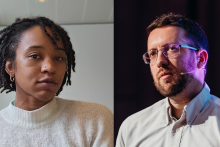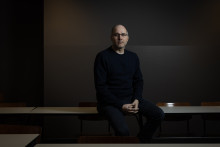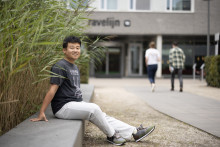Research
The research focused on the level of diversity and inclusivity in manufacturing, software and engineering companies in Twente.
It was conducted by University of Twente students Amalia Balan (Master student of Communication Science) from Romania, Carithea Richard (Master student of Industrial Design Engineering) originally from Jamaica and Daria Lungu (Master student of Business Administration) from Romania.
The project was initiated and financed by Gemeente Enschede, Twente Board, University of Twente, Fraunhofer Innovation Platform (FIP) and Keeping Talent in Twente (KTIT).
Why did you decide to conduct research into diversity and inclusivity in workplaces in Twente?
Amalia Balan: ‘For us, as internationals, the topic of diversity in workforce – in the region we study in – is very important. As an international student, you see the differences and you see that there are less opportunities for foreigners. The research took a lot of effort, but it was definitely worth it.’
Carithea Richard: ‘I study Industrial Design Engineering. When I start working, I know I will be surrounded by engineers. During my internship I saw how few women and internationals there were. We always talk of sustainability in the sense of environmental sustainability, but what about social sustainability? Will employees from different backgrounds come and stay? Will the current employees be willing to accept people from other backgrounds? I put in the effort so that people like me feel comfortable in their workplace here in Twente.’
Daria Lungu: ‘Exactly. We want to make it easier for people who come after us.’
What was the main goal of the research?
Amalia Balan: ‘Our purpose was to identify what was the current diversity level in companies in Twente. More specifically, we focused on software, engineering and manufacturing companies here. We were interested in the companies’ attitude towards diversity, their practices and policy. I’d also like to highlight: There was no research on this topic. We were the first to look into this.’
Can you summarize the main findings?
Amalia Balan: ‘We saw that the companies were quite diverse in a way. In 63% of the cases, English is the main language in the company. Companies seem to recognize the importance of internationalization. The representation of international employees is at 38%. On the other hand, the average female representation is at 24% and none of the companies have a diversity officer.’
Daria Lungu: ‘It’s important to remember that we focused on software and engineering companies. That is why the percentage of international employees is quite high. In most of these companies, employees don’t necessarily need to speak Dutch, as long as they know the programming language. If we included a wider pool of companies, the percentage would be much lower.’
Carithea Richard: ‘From our research we found that companies are just becoming aware of the topic and they don’t have any resources to focus on it. However, diversity is a topic they are very interested in. They just don’t know how to handle it – yet.’
Main findings
The research, which consisted of interviews and a survey, shows that:
- In 63% of companies English is spoken as the main language
- There is 38% international employees representation in manufacturing, engineering and software in Twente
- 24% of the employees are women
- 81% of the managers and CEOs are Dutch
- None of the companies have a diversity officer
Would you have any advice for the companies?
Daria Lungu: ‘An advice we also heard from one of the CEO’s we interviewed was: Hire your first international. Things become a lot easier after that. Hire one international. It can do wonders.’
Carithea Richard: ‘Based on our research we also prepared a toolkit for companies – booklet and a board game. I’d advice to use this toolkit as a guide to steer them in the right direction. The toolkit is made with their current level in mind, it starts at the very beginning.’
What are the next steps?
Amalia Balan: ‘We are now trying to increase awareness about the study. We have received very positive feedback. Companies are interested and they are reaching out. We would like to do a follow-up research, if the stakeholders are also interested. We have only scratched the surface so far and we would like to go more in-depth.’
Within five or ten years, what do you hope Twente will look like – in terms of diversity and inclusion in the workplace?
Carithea Richard: ‘I hope the region develops to be more inclusive. I hope it becomes known as a place where people of all backgrounds feel welcome, where they feel part of the community. I hope people come here and don’t have to worry about not getting the job because of their nationality or gender and that they feel really comfortable on the work floor.’







